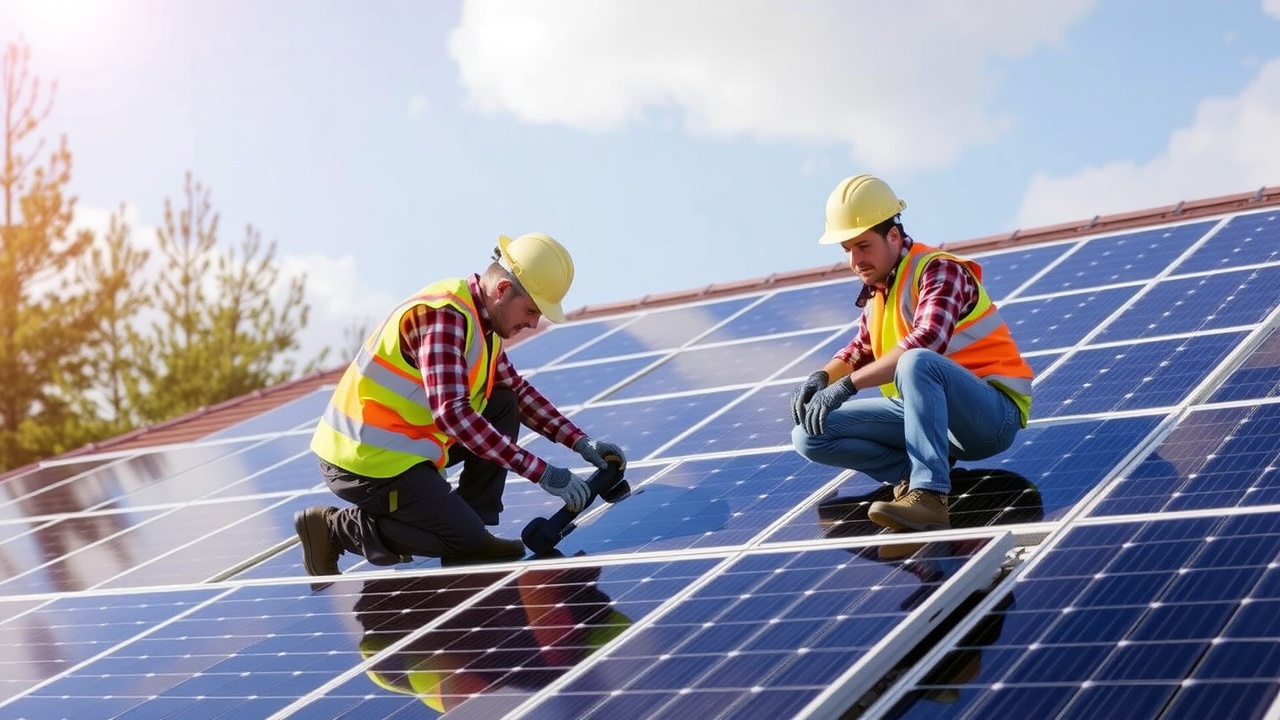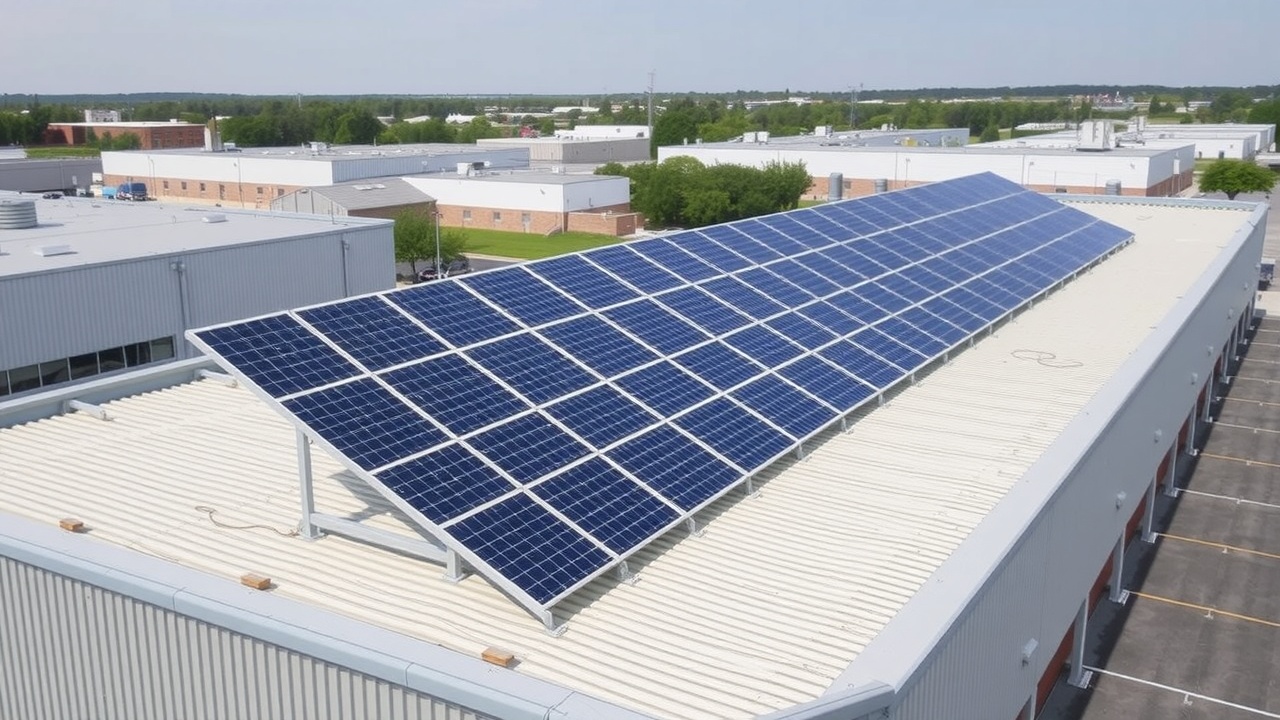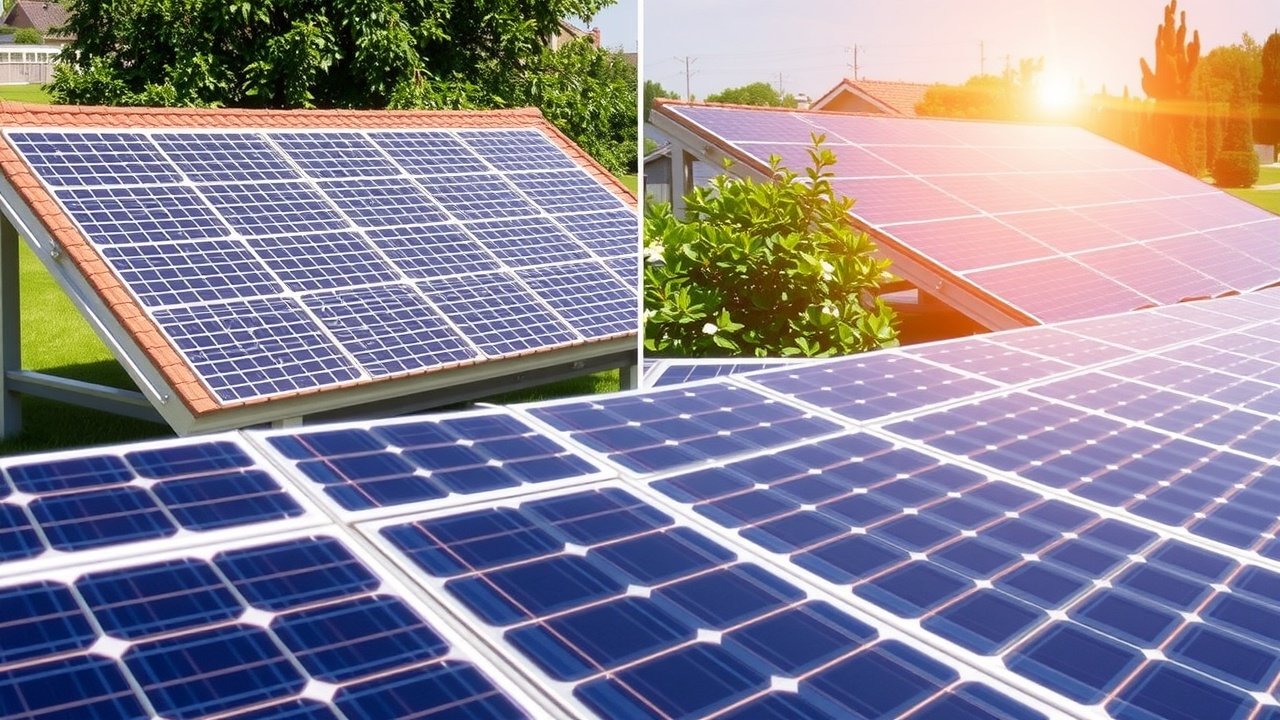
The government intends to use solar panels as a key component of its green economy initiatives in the UK
Are they economical, though?
With the announcement this month that all new-build homes in England will have solar panels installed by 2027, Energy Secretary Ed Miliband's pledge to bring about a "rooftop revolution" with solar panels took a step further.
Ministers are reportedly getting ready to provide government-backed grants and loans for the installation of solar panels on existing homes at the same time.
Miliband stated his intention to have them installed in "millions" of properties. With the possibility that new grants and subsidies may be on the horizon, he added that the government would try to "encourage builders and homeowners in whatever way we can" to switch to solar.
Solar panels are currently installed on the roofs of nearly a million homes. They can lower your energy costs and increase the value of your house by harnessing the sun's energy and turning it into electricity. However, the cost of installing them may be high.
Nonetheless, the energy crisis continues to put pressure on household finances. For a typical household that uses gas and electricity and pays with a direct debit, the annual energy price cap is set at 1,849 between April 1, 2025, and June 30, 2025. This represents a 6.4 percent increase over the cap that was established between January 1 and March 31, 2025 (1,738).
Here are all the important details about installing solar panels and whether they can significantly lower your energy costs.
What is the installation cost of solar panels?
Solar panels were once thought to be too expensive. Installments fell because people felt they couldn't afford the full cost of installation after government subsidies essentially stopped coming after 2016.
However, the government's decision to remove VAT from the price of solar panels and battery energy storage systems has helped to boost the number of installations, which has increased as a result of the energy price crisis, according to the trade group Solar Energy UK.
Also, retrofitted battery units are no longer subject to VAT. The number of new homes being built with solar panels already installed has recently increased, propelling the solar market to levels not seen in more than ten years.
According to Solar Energy UK, the cost of small-scale rooftop installations has decreased by 25% on a per-kilowatt basis over the last two and a half years, maintaining a long-term trend.
The solar panel standards organization, MCS, projects that the average cost of installing solar panels in 2025 will be between £7,200 and £7,700. You might need to spend more money on a battery (7,00010,000) and a diverter (300+), which is a gadget that uses solar energy to heat your hot water, in order to maximize the savings this system produces. Additionally, solar panels don't need much maintenance, so there are no recurring expenses. To maintain optimal performance, they typically only require cleaning once a year.
In most cases, installation grants from the government and energy suppliers are limited to those with lower incomes or those who reside in homes with low energy performance ratings. For instance, if you live in a home that uses electric heating and make less than £31,000 annually, you may be eligible for a grant from the Energy Company Obligation scheme in England and Wales, which offers grants ranging from 7,000 to 20,000 or more to install energy-saving heating and insulation upgrades. However, considering the new government's fervor for solar energy, change might be imminent.
Get several quotes before making a purchase, advises Solar Energy UK. These ought to be provided by MCS-registered contractors. This serves as a guarantee that the services you receive will be safe and of high quality.
How many solar panels are required?
The size of your roof and the size of the solar panels determine how many you can purchase. According to Solar Energy UK, a typical average-sized home would have eight to ten four-kilowatt solar panels installed.
With this many solar panels installed and a battery system large enough to match your energy consumption, you should be able to meet all of your annual electricity needs. The trade association claims that if you don't use a lot of energy anyway, selling what you produce back to the grid could result in "hundreds or even thousands of pounds a year" reduced energy expenses.
The Energy Saving Trust has a useful solar power calculator tool to help you see how much you could save with your home.
I want to install solar panels, but do I need planning permission?
Currently, solar panels typically don't require planning permission. Their installation is regarded as approved development.
Listed buildings, residences in national parks and conservation areas, and other properties are subject to limitations. It's best to contact your local planning office in these situations. They might compel you to choose solar tiles or other more costly options than typical panels. If you live in an apartment building, you will probably need to obtain approval from both your landlord and the majority of the building's occupants in order to have them fitted.
The new administration may loosen all of these regulations, and Ed Miliband is anticipated to examine them in a future solar roadmap. The current government is too complicated and restrictive, according to a January 2024 review conducted under the previous Conservative administration.
Although these have not yet been made public, it was reported in May 2025 that ministers are preparing to provide new government-funded loans and grants to increase the number of solar panel installations on existing homes.
It's also important to remember that you might have to register your system with a district network operator. Both a smart meter and an agreement with the electricity company that will purchase your excess power are essential.
Additionally, you should consider whether your roof is shaded during the day and which way it faces (south is the best, east and west are a little less effective, and north is a no-no) in order to determine whether installing solar panels is worthwhile.
Is purchasing solar panels in the UK worthwhile?
Although solar panels may not seem to be suitable for the UK's climate, they can actually pay for themselves rather quickly. This is because they don't always require sunlight to function, though over the winter and in cloudy conditions, their performance will suffer.
How much energy your home uses, which direction your roof faces, the angle of this roof, and how much power you can use yourself or sell to the grid are just a few of the many variables that will affect the precise timing of when you will see a return on your investment.
The country in which you reside may also be a factor. The Energy Saving Trust estimates that a Londoner who stays at home all day will pay for their solar panels in an average of 11 years, and a person who typically leaves the house until 6 p.m. will pay for their panels in 12 years. However, the payback period would normally be 13 years, rising to 14 years in these same scenarios, if you lived in Stirling, Scotland.
These projections might be a bit optimistic, as Solar Energy UK believes that the typical household could be able to cover the cost of panels in about ten years. Quality panels should last for at least 25 years, according to MCS, so the investment will almost certainly pay for itself and then some.
Consequently, solar panels are probably a good investment if you can afford the initial expenses and reside in a suitable home. However, since more grants and subsidies might become available, it might be worthwhile to wait a few months until Labour plans to unveil its solar revolution strategy.














Leave a comment on: Are solar panels worth installing, and how much do they cost in the UK?